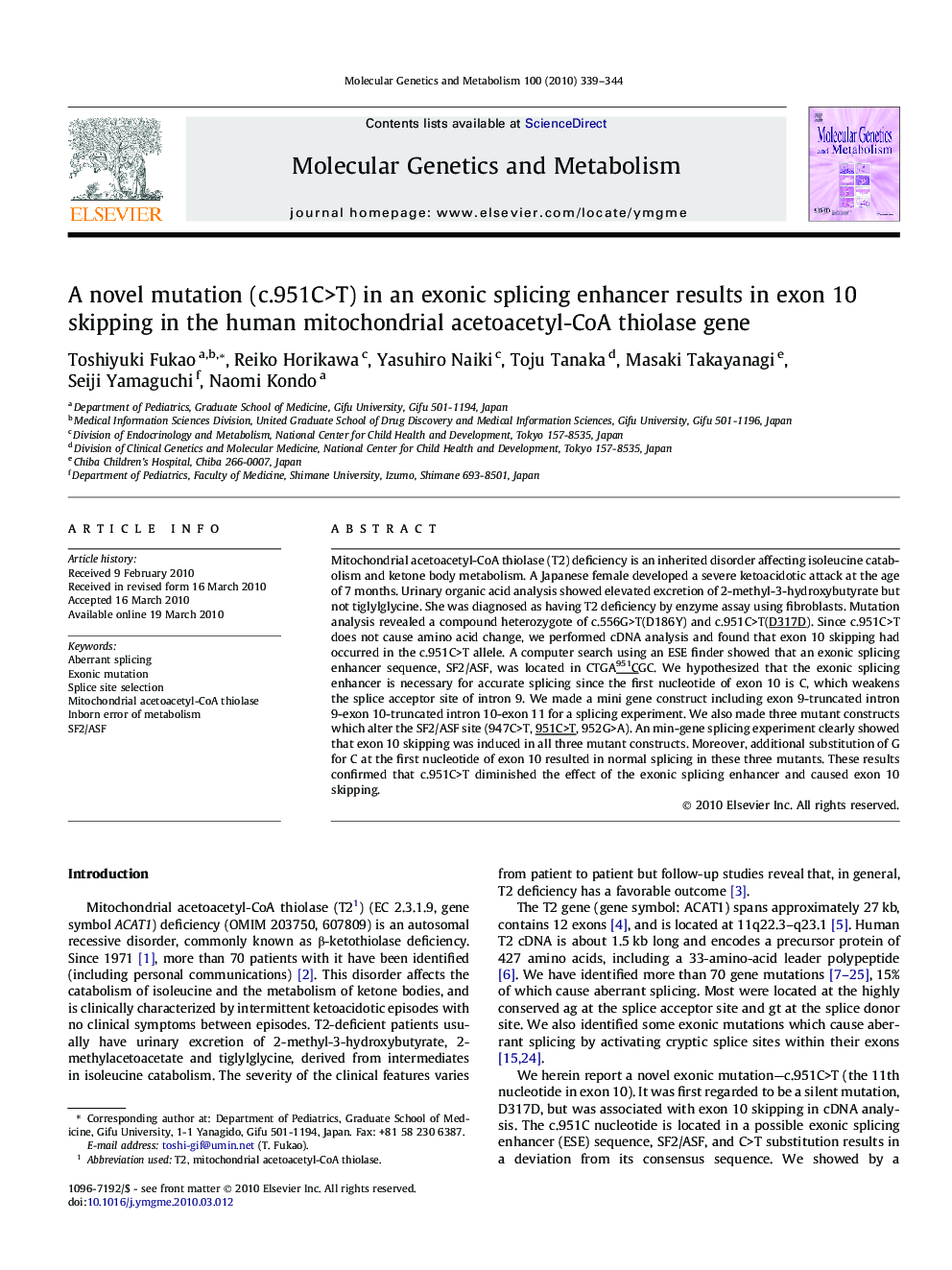| Article ID | Journal | Published Year | Pages | File Type |
|---|---|---|---|---|
| 1998496 | Molecular Genetics and Metabolism | 2010 | 6 Pages |
Mitochondrial acetoacetyl-CoA thiolase (T2) deficiency is an inherited disorder affecting isoleucine catabolism and ketone body metabolism. A Japanese female developed a severe ketoacidotic attack at the age of 7 months. Urinary organic acid analysis showed elevated excretion of 2-methyl-3-hydroxybutyrate but not tiglylglycine. She was diagnosed as having T2 deficiency by enzyme assay using fibroblasts. Mutation analysis revealed a compound heterozygote of c.556G>T(D186Y) and c.951C>T(D317D). Since c.951C>T does not cause amino acid change, we performed cDNA analysis and found that exon 10 skipping had occurred in the c.951C>T allele. A computer search using an ESE finder showed that an exonic splicing enhancer sequence, SF2/ASF, was located in CTGA951CGC. We hypothesized that the exonic splicing enhancer is necessary for accurate splicing since the first nucleotide of exon 10 is C, which weakens the splice acceptor site of intron 9. We made a mini gene construct including exon 9-truncated intron 9-exon 10-truncated intron 10-exon 11 for a splicing experiment. We also made three mutant constructs which alter the SF2/ASF site (947C>T, 951C>T, 952G>A). An min-gene splicing experiment clearly showed that exon 10 skipping was induced in all three mutant constructs. Moreover, additional substitution of G for C at the first nucleotide of exon 10 resulted in normal splicing in these three mutants. These results confirmed that c.951C>T diminished the effect of the exonic splicing enhancer and caused exon 10 skipping.
